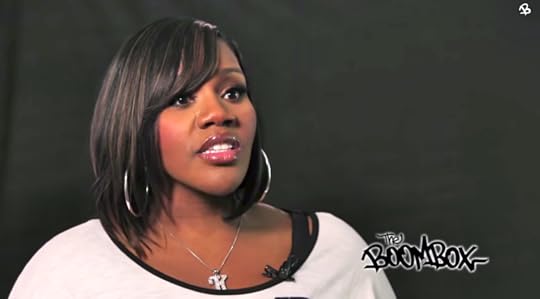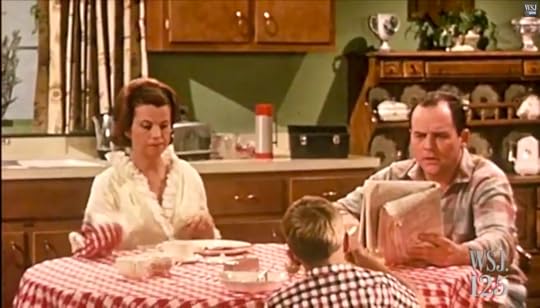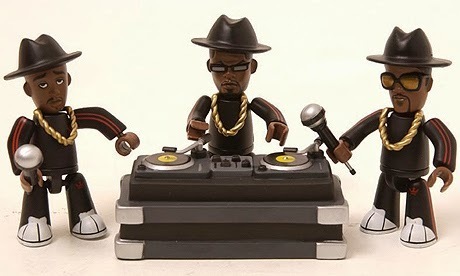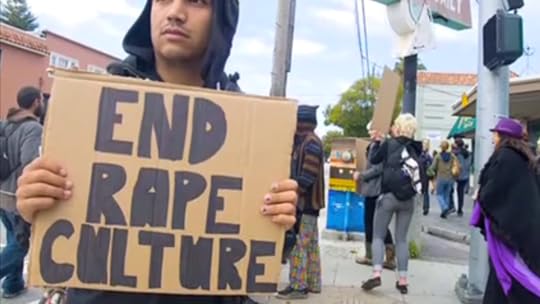Mark Anthony Neal's Blog, page 813
July 10, 2014
Lee Morgan: "Search for the New Land" (1964)
Published on July 10, 2014 07:38
July 9, 2014
Kelly Price Talks 'Sing Pray Love' Album, Reality TV Drama & Family Hardship
 The Boombox
The Boombox
Kelly Price sits down with The Boombox to open up about her new album, Sing Pray Love, Vol. 1, her experience on reality TV and coping with the death of her sister.
Published on July 09, 2014 18:10
Don Cheadle Goes Indiegogo Route to Complete Film on Life of Miles Davis
Published on July 09, 2014 11:14
July 8, 2014
The-Dream Films Video for 'Black' in Langa, South Africa
Published on July 08, 2014 19:32
Newspaper Readership Then, Now and in the Future
 WSJ Digital
WSJ Digital
Newspapers in America have been assailed by digital technologies and a changing American lifestyle. What were the industry's game-changing historic moments? What's next for newspapers? WSJ's Jason Bellini reports. Image: Prelinger Archive
Published on July 08, 2014 18:54
Master Event Planner and Floral Couturier Preston Bailey Discusses New Book
 Master event planner and floral couturier Preston Bailey discusses his new book
Preston Bailey: Designing with Flowers
at Talks @ Google.
Master event planner and floral couturier Preston Bailey discusses his new book
Preston Bailey: Designing with Flowers
at Talks @ Google.
Published on July 08, 2014 12:45
July 7, 2014
Men in America: Teen Tries To Be The Parent His Own Dad Never Was
Published on July 07, 2014 20:55
Did Hip-Hop Kill Black Music? #TheStateofBlackMusic
 #TheStateofBlackMusic
#TheStateofBlackMusicDid Hip-Hop Kill Black Music? by Prince Charles Alexander | special to NewBlackMan (in Exile)
Something happened to Black music in America.
In 1979, I hated “Rapper’s Delight.” You could have shut down Hip-Hop right there for me and called that a novelty record. How dare they steal Nile Rodgers’ hard earned intellectual property. Besides, I had just put out my first single and that record was taking up my airtime at local radio.
In 1985, while walking down 7th Avenue in Times Square, I saw the Billboard Magazineheadline, “Walk This Way” reaches No. 1. I knew then that the handwriting was on the wall, and, sure enough, most of the Funk and Soul artists got dropped from their record labels within a two-year span. A cheaper, more cost effective way of making music had proven its economic viability.
By 1987, my fear of being made irrelevant as a musician had reached a fever pitch and I began a process of deep reflection. This was a war, and in the art of war, you must know your enemy. This “thing” that called itself music and had taken jobs away from so many musicians. What was the enemy made of? It was all so foreign. Where could I go to figure it all out?
In 1993, while mixing a record for Bad Boy Records, I told Diddy that Mary J. Blige’s vocal performance was not in tune. He said, “Watch what I do with this.” That record went on to sell more than 3 million records, was nominated for Best R&B Album at the 38th Grammy Awards, and, in 2006, was included in Time’s 100 greatest albums of all time list. We did not call her back to replace the out of tune vocals.
In 1996, while finishing work on the Notorious B.I.G.’s second album, he wrote a song on the spot called “You’re Nobody ‘Til Somebody Kills You.” I asked him why he would want to put that thought into the universe and he answered, “Because that is how it is right now, out here, in these streets.” And then he was gone.
In 2002, Donnie McClurkin won the Grammy for Best Contemporary Soul Gospel Album. I was the sole mixing engineer on that project and often reflect on the wonders of my musical journey that brought me into the room with the pastor of a mega church who had something to say with the power of music.
I hated a style of music so long, that I no longer had the energy to hate it anymore; I feared a style of music so much that I chose to face it instead of fleeing from it.
And what I learned was that my hate was a by-product of jealousy and my fear was a by-product of ignorance.
Our current Black culture is in jeopardy from the misogynistic, cannibalistic, zombie inducing cultural codes that are being thrown at our children?
But, have you ever heard a beat that was misogynistic?
Have you ever heard a melody that wreaked of thug life?
Have you ever heard a harmony that endangered a child?
Has an instrument ever placed a culture into despair?
It is not music that is the problem in the music business, it is the message and the messengers.
Black music in America sounds the way it does because musicians are not at the table trying to make 21st century music. Musicians are spending their time complaining about why their 20th century “thing” is not being received well.
Are we clear that musicians speak medicine, and the rest of the country speaks first aid?
I am not condoning any immature rapper’s lyrics. I am putting out a call to all musicians to stop hating and get busy creating music that speaks to this generation and the 21st century.
The language of your craft has gone way beyond your instrument. How much of it do you know?
If you do not speak to the people of this generation in a language they can understand, then people who are uninformed will gladly continue defining music culture, and the culture of your neighborhoods, for years to come.
What is the solution to the current state of music in America? For musicians to stop hating it, for musicians to stop fearing it; For musicians to begin understanding the musical and sonic vocabularies so that they can recapture their place as innovators within the 21st century’s version of this most innovative art form.
I’m asking every musician to modernize their creativity, to up their technology, to increase their entrepreneurial net worth.
Listen up, wake up!
Before we can get the hearts and minds of the audiences that are listening to the destructive messages in today’s music, we must first conquer the music itself.
Listen, absorb, understand, contextualize; then…create!
Be-Hip-Bop-Hop-Pop
It begins now… No Hate, No Fear!
***
Prince Charles Alexander is a Grammy Award winning musician, recording artist, record producer, audio engineer and educator. He is a professor in the Music Production and Engineering Department at Berklee College of Music in Boston, Massachusetts.
Published on July 07, 2014 14:46
Como Amar: GlobalGirl Media Examines Rape Culture
 GlobalGirl Media
GlobalGirl Media
GlobalGirl Andrea Reyes looks into the rise of rape culture in America, a term she defines as the glorification of violence against women. Reyes interviews university professors and feminist advocates, who consider the ways rape culture de-stigmatizes and promotes sexual assaults on women, often by men they know well.
Published on July 07, 2014 05:47
July 6, 2014
NPR's Tiny Desk Concert: Foreign Exchange
 NPR | Tiny Desk Concert
NPR | Tiny Desk Concert
Phonte Coleman and Nicolay of The Foreign Exchange are joined by keyboardist ZO! in a performance of "On a Day Like Today," "Listen to the Rain," and "Call it Home" as part of NPR's Tiny Desk Concert series.
Published on July 06, 2014 19:12
Mark Anthony Neal's Blog
- Mark Anthony Neal's profile
- 30 followers
Mark Anthony Neal isn't a Goodreads Author
(yet),
but they
do have a blog,
so here are some recent posts imported from
their feed.







